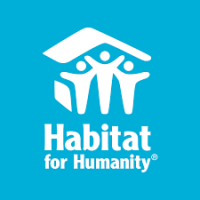
Almost a quarter of the world’s population lives in substandard shelter, affecting their health and livelihoods and their children’s education. Since 1976, Habitat for Humanity has helped more than 10 million people worldwide improve their shelter conditions. Yet, Habitat’s construction efforts alone cannot keep pace with the massive and growing need. In fact, no response by governments or private philanthropy alone can meet the shelter needs of 2.8 billion people.
Habitat for Humanity established the Terwilliger Center for Innovation in Shelter (Terwilliger Center) to improve the inclusiveness of housing markets, including by supporting enterprises to expand the market availability of innovative and client-responsive services, products and financing so that households can improve their shelter more effectively and efficiently.
This approach is based on our understanding of the critical role of markets. Indeed, most low-income people already use available market options to, for example, secure a roof — no matter how frail or insecure — over their heads. Alternatively they may look to a local savings or credit provider to improve their financial resources.
Our work with enterprises seeks to improve the accessibility, affordability, and appropriateness of these products and services. Thematics include sustainability as well as gender. The types of enterprise approaches that we take currently includes:
- lead firms through a market systems development approach · innovative startups/scaleups through our ShelterTech platform;
- small and medium enterprises that provide construction services directly to households
- financial services providers in particular microfinance;
- multi-national or regional corporates in terms of enabling more appropriate product/service lines.
Scope of work
Develop a framework for the Terwilliger Center’s work with enterprises of different shapes (business models and location in the housing value chain), sizes and geography, driving impact for low-income households
Methodology
The methodology will be further refined with the selected consultant, and is likely to include:
1. Desk research and internal interviews to accurately analyze our existing technical approaches and logic models for our work with enterprises. Existing documentation on our approaches will vary. Note: we are currently commissioning an evaluation of our ShelterTech platform and there will be a need to connect with this work.
2. Desk research and external interviews to gather best practices with regards to generating social and environmental impact through work with enterprises.
3. Generation of logic models through which to understand our existing work with enterprises as well as opportunities for enhanced or new approaches/logic models, with comparison against external best practice. This will include consideration of the impact that could be
achieved, including the metrics and approaches by which this impact could be measured – in consultation with our Monitoring Evaluation Accountability and Learning team.
4. Final generation of a new framework to guide our work with enterprises and the maximization of impact for low-income households.
5. Expert facilitation of the above process in order to ensure it is embedded in our practice, learning, and expertise. This is crucial to ensure that the final framework reflects and has buy-in from internal expertise. This includes facilitation at a physical workshop (see below).
This consultancy will be managed by our Enterprise Lead, working with a small team to appropriately steer the work. This consultancy will work consultatively with leaders and teams across the organization including: Innovation Labs in Peru, Mexico, Kenya, India and Philippines; our Housing Finance Team; and our Market Systems Development team.
It is envisaged that most of the work will take place remotely and over Teams, with the exception of a physical workshop planned for Feb-Apr 2025 in order to engage in deep dialogue around findings and options moving forward.
TIMEFRAME
It is envisaged that this work will commence mid/end October 2024 and run through end May 2025.
KEY COMPETENCIES
Habitat will consider individuals or firms with the following characteristics:
a) Established knowledge and experience the use of analysis and conceptual frameworks to assist organizational dialogue and strategy setting
b) Expertise in private sector development for international development, in particular around the conceptual frameworks and measurement approaches for a range of interventions (e.g. financial, capacity building, market access, policy) with different types of enterprises (e.g. corporate, MSMEs, social enterprise, etc) to achieve social and/or environmental impact
c) Significant understanding of programs seeking to benefit low-income households in the Global South
d) Excellent facilitation skills to draw out key concepts and work in a global environment, including identifying new potential synergies within a matrixed environment.
e) A collaborative spirit – this consultancy will be done in consultation with teams across TCIS – and an ability to work with an ambiguity
Desirable competencies are: Insights into low-income housing markets in the Global South. Fluency in other languages (esp Spanish). Location is flexible however the provider must be able to facilitate sessions with people in different timezones – from the Philippines to Mexico.
BUDGET
The consultancy budget is up to $40,000 and this excludes travel to the physical workshop. Final deliverables are subject to approval.
How to apply
HOW TO APPLY
To apply please provide in 8 pages or under:
A profile detailing relevant expertise and track record, including fit against the requirements above and details about your team and individual relevant expertise
A proposal outlining your approach to the consultancy and a project plan, including timeline
A costed proposal, including number of days allocated per individual
Applications should be received no later than 9am BST on 30th September to Paula Woodman PWoodman@habitat.org. Both individuals and firms will be considered.
Only short-listed candidates will be contacted.

